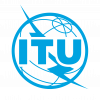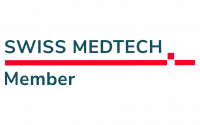BLOG
Telecom26 blog
Deploying Telecom26 Global SIMs to support digital health programmes that prevent the spread of infectious diseases

In a series of articles in the Africa Journal of Laboratory Medicine summarised in this abstract Connected diagnostics systems: The future of disease control in Africa, the expert authors write that:
COVID “has ushered us into a new era of global public health urgency, with diagnostics and laboratory medicine at its centre” but warns that “to take advantage of this focus on diagnostics to leapfrog some of the barriers in low- and middle-income countries, we must first understand what is feasible and effective in our setting”.
The authors write that “the rapid spread of COVID-19 means that countries need real-time smart data systems for evidence-based decisions on public health measures and travel restrictions” and that change is needed “outside the laboratory to support a better future for diagnostics”.
Our team was particularly interested in a piece that describes how Nigeria built a national referral laboratory and established a country-wide specimen referral network to support national priority diseases including yellow fever, lassa fever, monkeypox, cerebrospinal meningitis, cholera, influenza and other enteric pathogens.
Telecom26 has been working in Nigeria, as well as other countries across both Africa and Asia, with our long-term client, SystemOne, for a while now. You can read more about our work in this blog: Providing IoT and global connectivity to digital healthcare programmes.
Telecom26 and Teltonika – providing connecting to digital health programmes
Unreliable bandwidth and patchy connectivity are problems encountered by digital health programmes across the world, particularly in Africa and Asia where many medical clinics are in remote areas with unreliable telecom networks.
Reliable connectivity is essential to help speed up diagnosis and treatment plans shared between medical teams on the ground and central testing laboratories.
Telecom26 traditionally supplied our Global SIM cards which can be inserted into all types of devices in the field to provide the best connectivity to the devices used by medical practitioners including phones, tablets, IoT devices and routers.
Last year we announced a new partnership with Teltonika Networks to integrate our Global SIM cards into Teltonika’s RUT241, industrial cellular routers. This means that users receive the router with the SIM inserted, fully configured, integrated into Teltonika’s Remote Management System (RMS) and ready for immediate deployment.
Devices connect to the routers to achieve the most reliable and best coverage. Telecom26 has a single billing relationship that supports multiple routes to each network provider in the region, including neighbouring country operators.
These routers are already being used by digital health programmes in Malawi, Bangladesh and Nigeria where they are being used to as part of the National Tuberculosis and Leprosy Control programme.
Put simply, Teltonika Routers + Telecom26’s SIMs and global network = always-on, cost-effective, easy to manage connectivity, delivered promptly to digital health programmes to help prevent the spread of infectious diseases – and improve outcomes for patients.
Get In Touch
If you’d like to arrange to a call to discuss how our global connectivity services can help connect the people and devices in your digital health team as they travel around the world then please get in touch.



